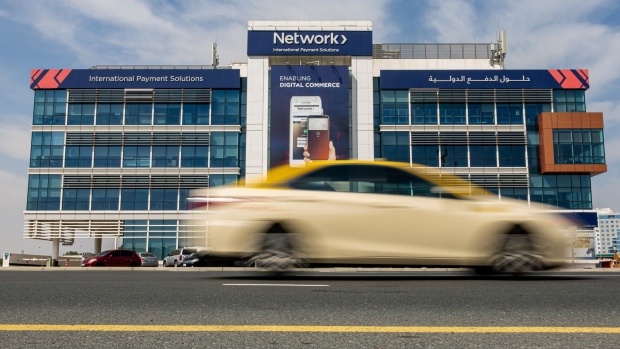Aug 9, 2023
Brookfield defies deal gloom, projects record inflows in 2023
, Bloomberg News

Brookfield Asset Management said it expects to raise US$150 billion this year, bucking the slowdown in the alternative-asset sector.
The Canadian firm posted distributable earnings of $527 million in the second quarter, or 32 cents per share, up 3 per cent from last year, according to a statement Wednesday. It made 28 cents a share on a net-income basis.
Brookfield said fundraising should accelerate in the second half, allowing it to reach $100 billion in inflows to private funds and $50 billion via its insurance business in 2023. But the firm said little about its efforts to raise cash in its private equity unit, an area of the market that’s facing significant headwinds.
The firm’s shares rose 1.3 per cent to $33.43 at 9:50 a.m. in New York.
Alternative asset managers that grew rapidly during the cheap-money era are contending with a new environment of higher rates and tighter credit, making leveraged deals more expensive. Added to that, sellers and buyers are often far apart on valuations for private assets.
Still, the Brookfield group sees the current market as rich with opportunity. It emerged as the world’s most acquisitive investment firm in the first half of the year, announcing about $50 billion of purchases. Last quarter, Brookfield’s renewable power unit agreed to buy a big portfolio of wind and solar farms from Duke Energy Corp. for $2.8 billion, while its infrastructure arm purchased Triton International Ltd., the world’s largest owner of intermodal shipping containers, for $13.3 billion including debt.
Brookfield’s energy transition fund also backstopped a $12 billion deal for Australian utility Origin Energy Ltd.
The firm ended June with $440 billion of fee-bearing assets, up 2 per cent from March. It has a goal of getting that number to $1 trillion by 2027. One-fourth of that comes from affiliates, including Brookfield Infrastructure Partners, Brookfield Renewable Partners, Brookfield Business Partners and its insurance business.
Brookfield Asset, which manages around $850 billion of assets including its parent company’s capital, partnered with Sequoia Heritage to form a new asset management unit focused on secondary and structured capital solutions in the technology and venture capital space, according to a letter to shareholders from Chief Executive Officer Bruce Flatt and President Connor Teskey.
The new business, called Pinegrove Capital, will raise an inaugural fund in the first half of next year, they said. Brookfield and Sequoia will collectively invest $500 million.
Toronto-based Brookfield said it has closed on $27 billion for its flagship infrastructure fund, the largest such fund ever raised.
Overall, the firm raised $17 billion in the second quarter, higher than the first quarter’s $13 billion. Brookfield is increasingly relying on cash-rich investors in the Middle East and Asia to fill the gap left by institutional investors in North America, many of whom are overallocated to private assets.
The firm completed $15 billion of asset sales during the first half of the year — mostly within the infrastructure and real estate businesses.
Brookfield Asset Management manages money on behalf of pensions, sovereign wealth funds and other investors, as well as some of Brookfield Corp.’s own capital. In December, the parent separated the asset management arm by creating a new public company, Brookfield Asset Management Ltd., to hold 25 per cent of the business in the belief it could lead to a higher valuation. Brookfield Corp. owns the other 75 per cent.
Brookfield Asset shares are up 15 per cent this year through Tuesday’s market close, better than Carlyle Group Inc. but underperforming Blackstone Inc. and KKR & Co.








